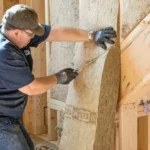Driveway sealing is more than just a cosmetic improvement—it’s an essential part of maintaining the value and durability of your home. Exposure to sun, rain, oil, and freezing temperatures gradually wears down your driveway, leading to cracks, fading, and surface damage. Sealing your driveway can prevent these issues and extend its life significantly.
In this detailed guide, you’ll learn how to seal your driveway properly, choose the right sealant, and decide whether to go the DIY route or hire professionals.
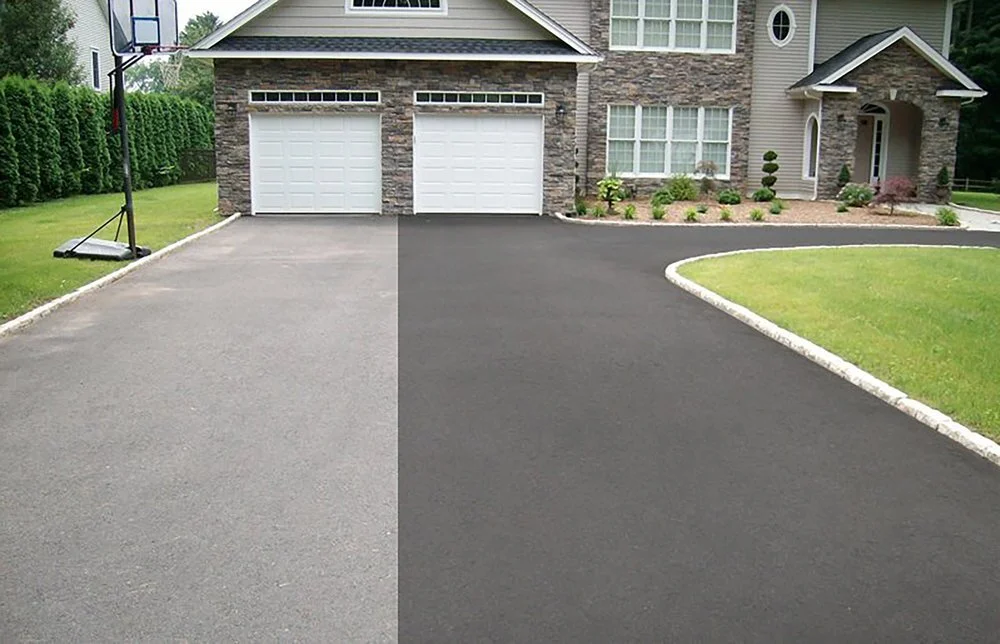
Content
What Is Driveway Sealing and Why Is It Important?
Driveway sealing is the process of applying a protective layer over a concrete or asphalt driveway to shield it from environmental damage. This barrier defends against moisture, UV rays, oil spills, and daily wear and tear.
Unsealed driveways absorb water, which can freeze and expand, causing cracks and structural damage. Without a protective layer, concrete driveway surfaces become vulnerable to erosion and staining. That’s why regular sealing is a smart move for long-term durability.
Benefits of Sealing Your Driveway
Here’s why homeowners choose to seal their driveways:
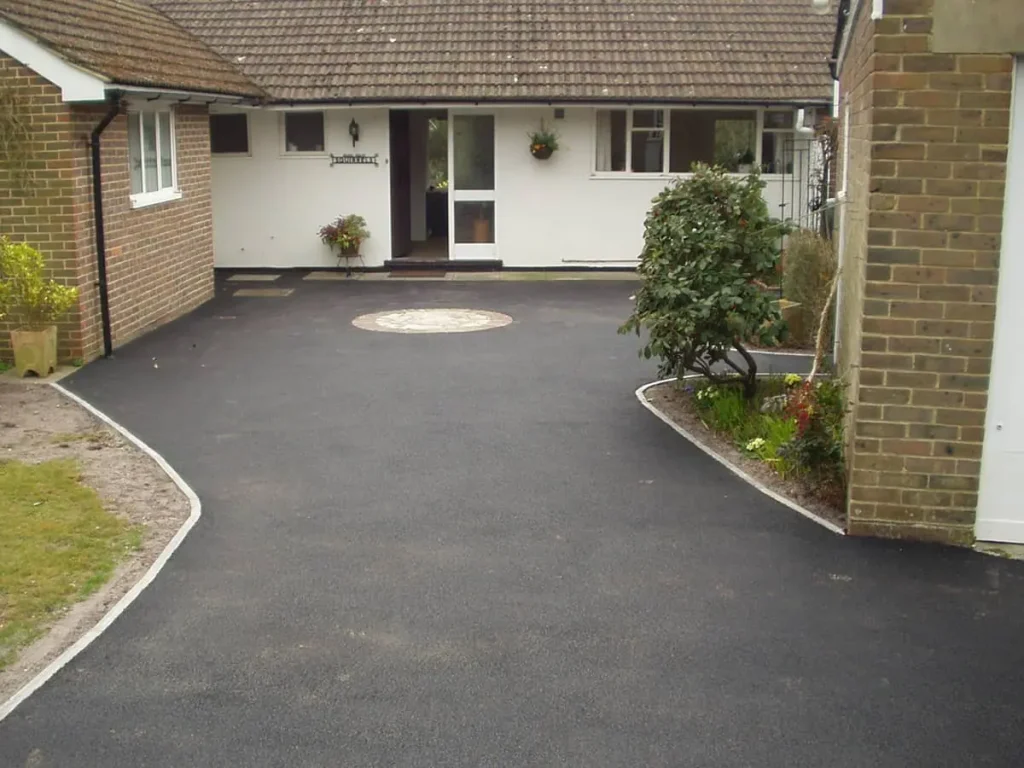
- Prevents surface cracks and potholes
- Repels water, oil, and salt
- Improves appearance and color richness
- Protects against UV and weather damage
- Reduces long-term repair costs
- Enhances property value
Sealing also helps reduce fading caused by sun exposure and maintains the overall integrity of your driveway.
Preparing for Driveway Sealing
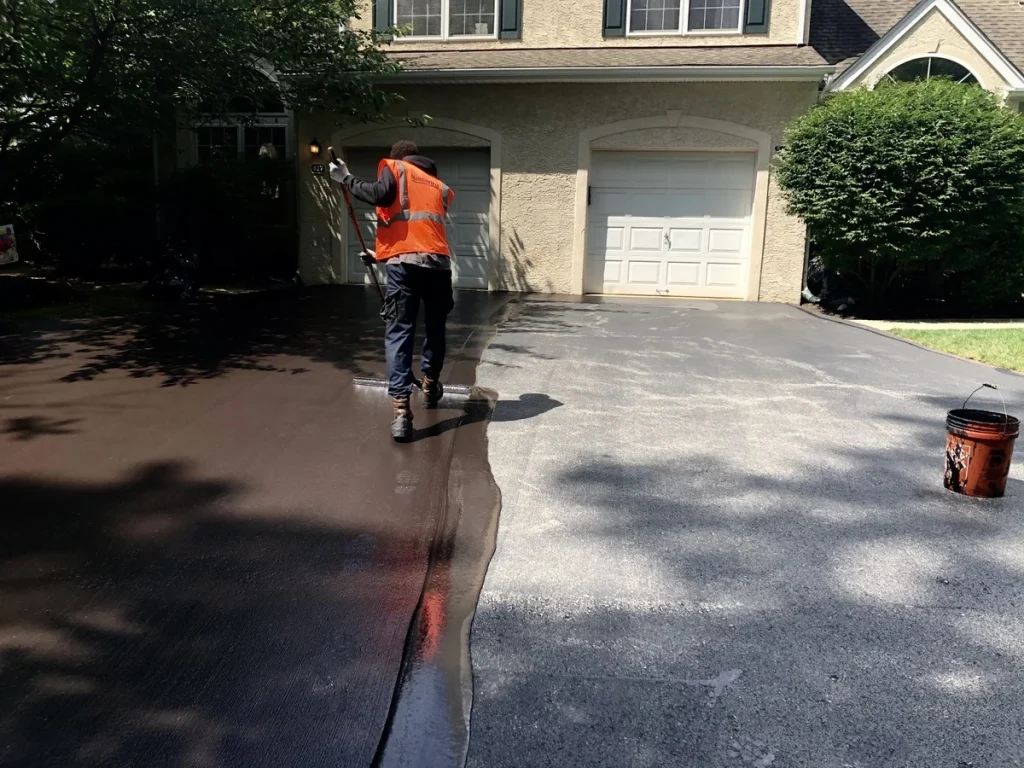
1. Start with Driveway Cleaning
Clean the driveway thoroughly to remove dust, dirt, oil, and plant growth. Use a pressure washer or specialized driveway cleaning solution for best results. If there are oil stains, apply a degreaser and scrub it off completely.
Tip: Proper cleaning ensures the sealant bonds well with the surface, which results in a smoother and more effective finish.
2. Repair Cracks and Holes
Inspect your driveway for visible damage. Use a concrete patch for minor cracks and holes. In case of widespread damage, consider concrete driveway restoration or concrete resurfacing before sealing.
Neglecting repairs before sealing can lead to trapped moisture and bigger problems down the line.
Choosing the Best Sealant for Your Driveway
Not all sealants are made equal. Your choice depends on the surface material and expected traffic.
For Concrete Driveways:
- Acrylic-resin sealers: Long-lasting and enhance surface color.
- Penetrating sealers: Soak into the surface, forming a water-resistant layer.
- Polyurethane sealers: Durable and stain-resistant, ideal for high-traffic areas.
If you’re looking for the best concrete sealant for driveways, acrylic-based options are a popular choice due to their balance of affordability, strength, and UV resistance.
For Asphalt Driveways:
- Asphalt emulsion sealers: Eco-friendly and easy to apply.
- Coal tar sealers: Very durable but less commonly used due to environmental restrictions.
Be sure to read labels and product details to match your driveway’s needs and climate conditions.
How Often Should You Seal a Driveway?
For most driveways, sealing every 2 to 3 years is ideal. If you live in an area with harsh winters or strong sun exposure, you may need to do it more frequently.
Signs it’s time to reseal:
- Faded surface color
- Water no longer beads on the surface
- Visible cracks forming
- Rough or chalky texture
Sealing too often can create a thick buildup that peels or cracks, so stick to recommended timelines.
DIY Driveway Sealing vs. Hiring a Professional
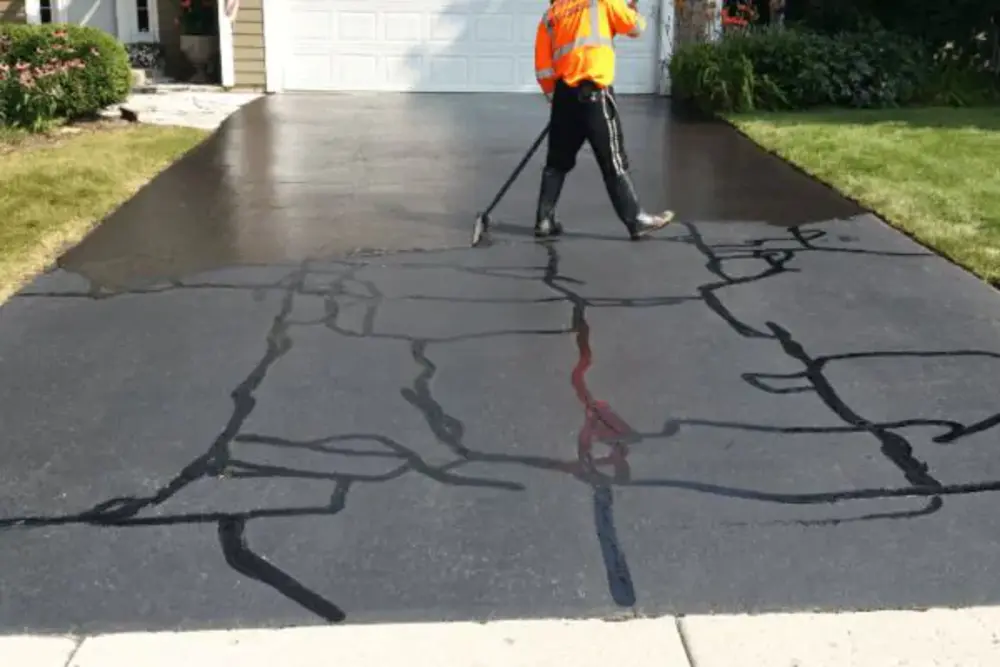
DIY Driveway Sealing:
Sealing your driveway yourself is possible if you’re comfortable with outdoor projects. You’ll need:
- Sealer product
- Roller, squeegee, or sprayer
- Protective gloves and eyewear
- Dry weather for 48 hours
DIY is cost-effective and gives you control over the process, but mistakes can lead to uneven coverage or peeling.
Hiring a Driveway Sealing Service:
Professional services provide quality finishes using industrial-grade tools and materials. They also handle repairs like concrete driveway leveling and edge sealing. For larger driveways or heavily damaged surfaces, calling an expert may be the better choice.
Cost of Driveway Sealing
The concrete driveway cost for sealing varies based on size, condition, and labor:
| Type | Average Cost |
|---|---|
| DIY (materials only) | $60 – $150 total |
| Professional sealing | $0.50 – $1.00/sq. ft. |
| Driveway resurfacing | $3 – $6/sq. ft. |
| Concrete leveling | $5 – $10/sq. ft. |
While the upfront cost of sealing may seem high, it’s far less than replacing the entire driveway.
When Is the Best Time to Seal a Driveway?
The ideal time for sealing is late spring to early fall when temperatures are between 50°F to 90°F and there’s no rain forecasted for 24–48 hours. Humid or wet conditions can interfere with the curing process.
Concrete Resurfacing vs. Driveway Sealing
Many homeowners confuse concrete resurfacing with sealing, but they serve different purposes:
- Resurfacing involves applying a new layer of concrete over the existing surface to fix deep cracks or holes.
- Sealing is a protective topcoat that preserves what’s already there.
If your driveway is worn but structurally sound, sealing is often all you need.
Maintaining Your Sealed Driveway
Once sealed, your driveway needs minimal maintenance:
- Clean spills quickly to avoid staining
- Avoid sharp tools or snow shovels that can damage the surface
- Rinse regularly to remove dirt and debris
- Reapply sealer every 2–3 years as needed
Also, consider concrete floor sealing in garages to match your sealed driveway and protect from oil or chemical spills.
Conclusion: A Smart Investment for Homeowners
Sealing your driveway is a low-cost, high-reward improvement that protects your investment, improves your home’s appearance, and reduces the need for major repairs.
By choosing the best concrete sealant for driveways, following proper driveway cleaning techniques, and performing regular maintenance, you can enjoy a smooth, long-lasting driveway for many years to come.
Whether you’re looking for DIY satisfaction or prefer to hire a driveway sealing service, sealing your driveway ensures you’re paving the way to greater durability and curb appeal.
FAQs
How often should I seal my driveway?
Most driveways should be sealed every 2 to 3 years. High-traffic areas or extreme climates may require sealing more frequently for maximum protection.
What is the best temperature for sealing a driveway?
The best temperature for sealing a driveway is between 50°F and 90°F with dry weather conditions for at least 24–48 hours to allow proper curing.

Christine Kelley is a dedicated home blogger who has been blogging for over six years. She covers everything home related. Christine also loves writing posts about her travels to Europe with her husband and two children.


